Generally, when most people talk about substance abuse, they are referring to the use of illegal drugs, although legal drugs can also be abused leading to addiction. Drugs abuse do more than altering your mood, it can cloud your judgment, distort your perceptions, and alter your reaction times, all of which can put you in danger of accident and injury.
These drugs got to be illegal in the first place because they are potentially addictive or can cause severe negative health effects. Some believe the use of illegal substances is considered dangerous and, therefore, abusive.
Nigeria is a country known for the abuse of drugs – both legal and illegal, among the Youths, especially men. In 2018, while in the heat of tackling substance abuse & addiction in Nigeria, Muhammed Idris, Sokoto State Commandant of the National Drug Law Enforcement Agency (NDLEA), said Nigeria is heading towards a major drug abuse crisis, as many young people across the country are becoming drug addicts by the day.
Thousands of bottles of codeine are consumed by young Nigerians on daily basis across the country, same with the intake of tramadol, Rohypnol, marijuana, and other opioids, an alarming trend that has subtly eaten deeply into the fabrics of Nigerian society.
There are many illegal drugs out there sold on the streets; while some are sold in a secretive way to avoid legal consequences., some can easily be found anywhere at any time. Let’s take a look at the most abused of these substances very common in Nigeria.
CANNABIS
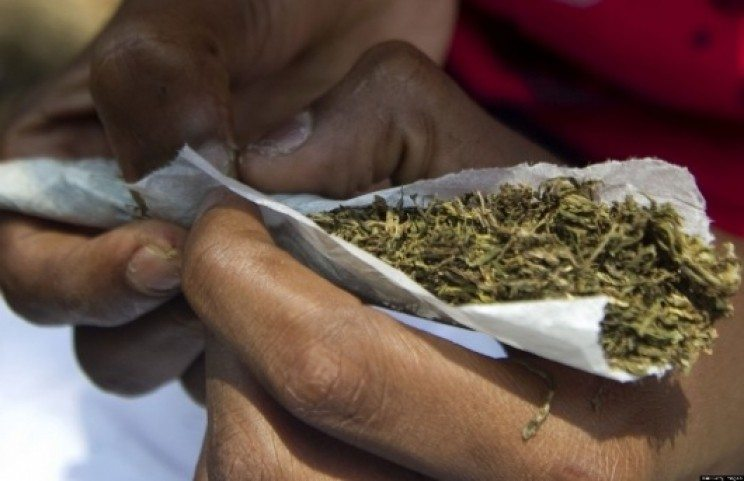
Also popularly known as Marijuana, its other street names are Mary Jane, kush, pot, Eja, blaze, ganja, etc.
Marijuana is the most widely used illegal drug and is probably the most easily accessible in the world.
The psychoactive component of Cannabis – tetrahydrocannabinol, or THC – is thought to have evolved as a botanical self-defence chemical, and is present in the hemp family of plants. The effects of cannabis are felt within minutes, reach their peak in 10 to 30 minutes, and may linger for two or three hours. THC is highly lipid-soluble and can be stored in fat cells potentially for several months. This is why it is usually difficult for cannabis users or addicts to stop taking the drug as it gets stored in the body cells for a long time.
Common effects of Cannabis are :
An altered state of consciousness. The user may feel “high”, very happy, euphoric, relaxed, sociable and uninhibited.
Negative experiences, such as anxiousness, panic, self-consciousness and paranoid thoughts are associated with it.
People who use large quantities of cannabis may become sedated or disoriented and may experience toxic psychosis – not knowing who they are, where they are, or what time it is.
CODEINE

The Codeine is being abused by Nigerian youths at an alarming rate. Known as “Lean, Codeine, or Coder” as it is fondly called, has become a favourite for many drug abusers because it is very easy to obtain. It is found in cough syrups, so it can easily be accessed over the counter at big and small pharmaceutical stores. It contains active ingredients that are psychoactive (mind-altering) at higher-than-recommended dosages and is frequently abused for this purpose.
Youths often mix it with soft drinks for flavour and are usually taken with alcohol or marijuana for an extra punch. Any quick visit to the pharmacy will confirm that the craze for cough syrups is high. This is not because there is a cough outbreak, but the stimulating effect of codeine in these cough syrups.
Effects of codeine
Common adverse effects associated with the use of codeine include drowsiness and constipation. Less common are euphoria, itching, nausea, vomiting, dry mouth, depression, and coughing. A person on lean may present a sedated appearance.
CRACK
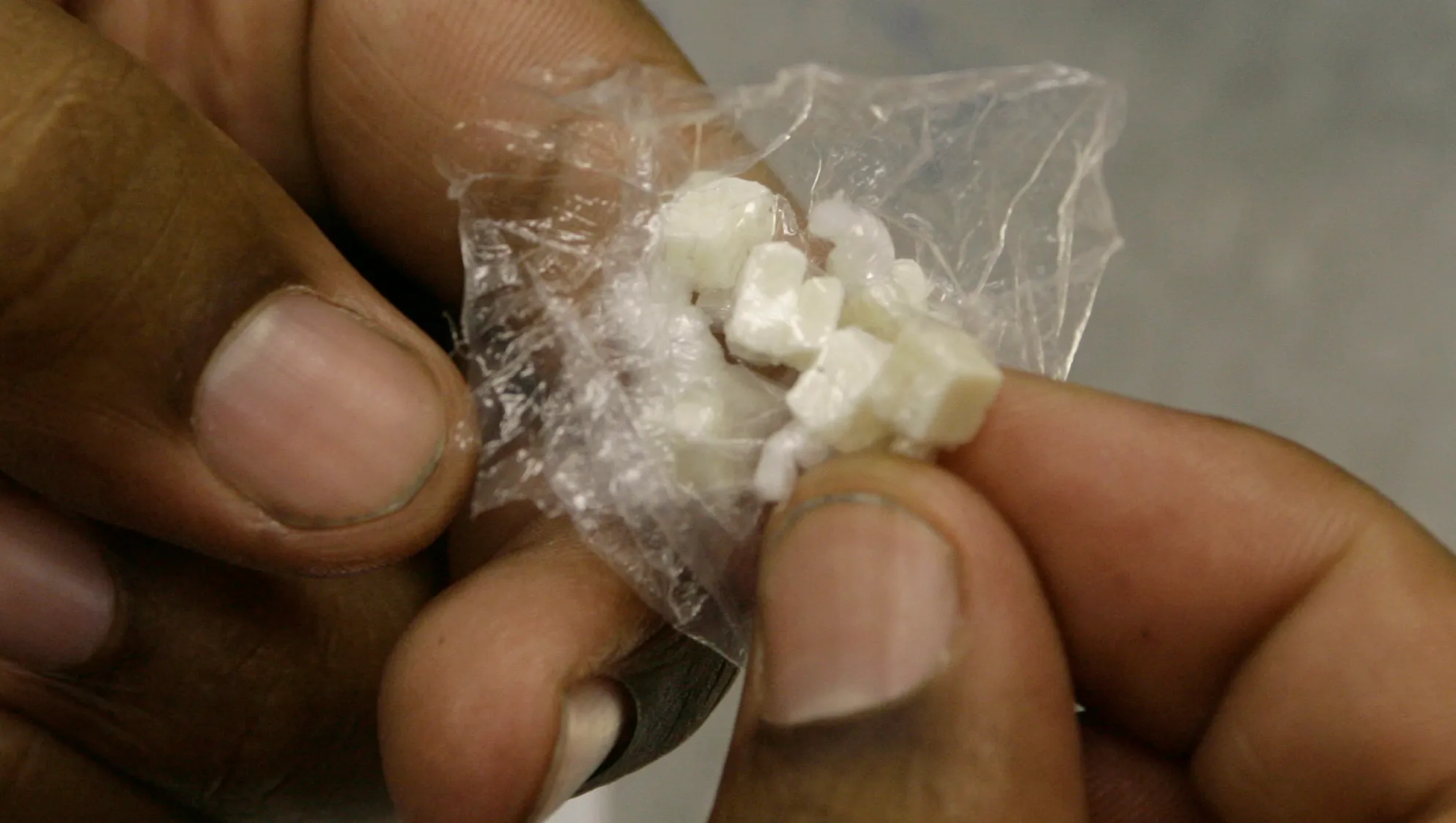
As opposed to powder, crack is a free base form of cocaine that can be smoked. It comes in solid blocks or crystals varying in colour from yellow to pale rose or white. Crack is heated and smoked. It offers a short but intense high to smokers. It is so named because it makes a cracking or popping sound when heated. Crack is riskier and more potent than regular powder cocaine.
Effects of crack
This includes loss of appetite, Increased heart rate, blood pressure, body temperature, Nausea, Hyperstimulation, Bizarre, erratic, violent behaviour, hallucinations, hyperexcitability, irritability, Convulsions, seizures and sudden death from high doses (even one time) etc.
TRAMADOL
Tramadol oral tablet is a prescription drug that is available as the brand-name drugs Ultram (immediate-release tablet) and Ultram ER (extended-release tablet). These forms of tramadol are also available as generic drugs; as a generic drug, it usually costs less. In many countries, Tramadol is a controlled substance; this means it can only be used with a doctor’s close supervision. However, in Nigeria, Tramadol is not a controlled prescribed drug, which is what makes it easily available even in kiosks.
Tramadol is a narcotic-like pain medication that is used to relieve moderate to severe pain. Tramadol can induce seizures as well as stop or delay your breathing. Even in low dosage Tramadol has the potential to become addictive.
Tramadol is also used to treat premature ejaculation during sexual intercourse. This is one of the most common ways it is misused, since young people take it to postpone ejaculation when having sex.
Effects of Tramadol:
Tramadol causes erectile dysfunction, dizziness or light-headedness when getting up from a lying or sitting position. It can also cause fainting, a fast heartbeat, frequent urge to urinate, gaseous abdominal or stomach pain, severe cramping, severe nausea, severe redness, swelling, and itching of the skin, etc.
ROHYPNOL (ROOFIES)
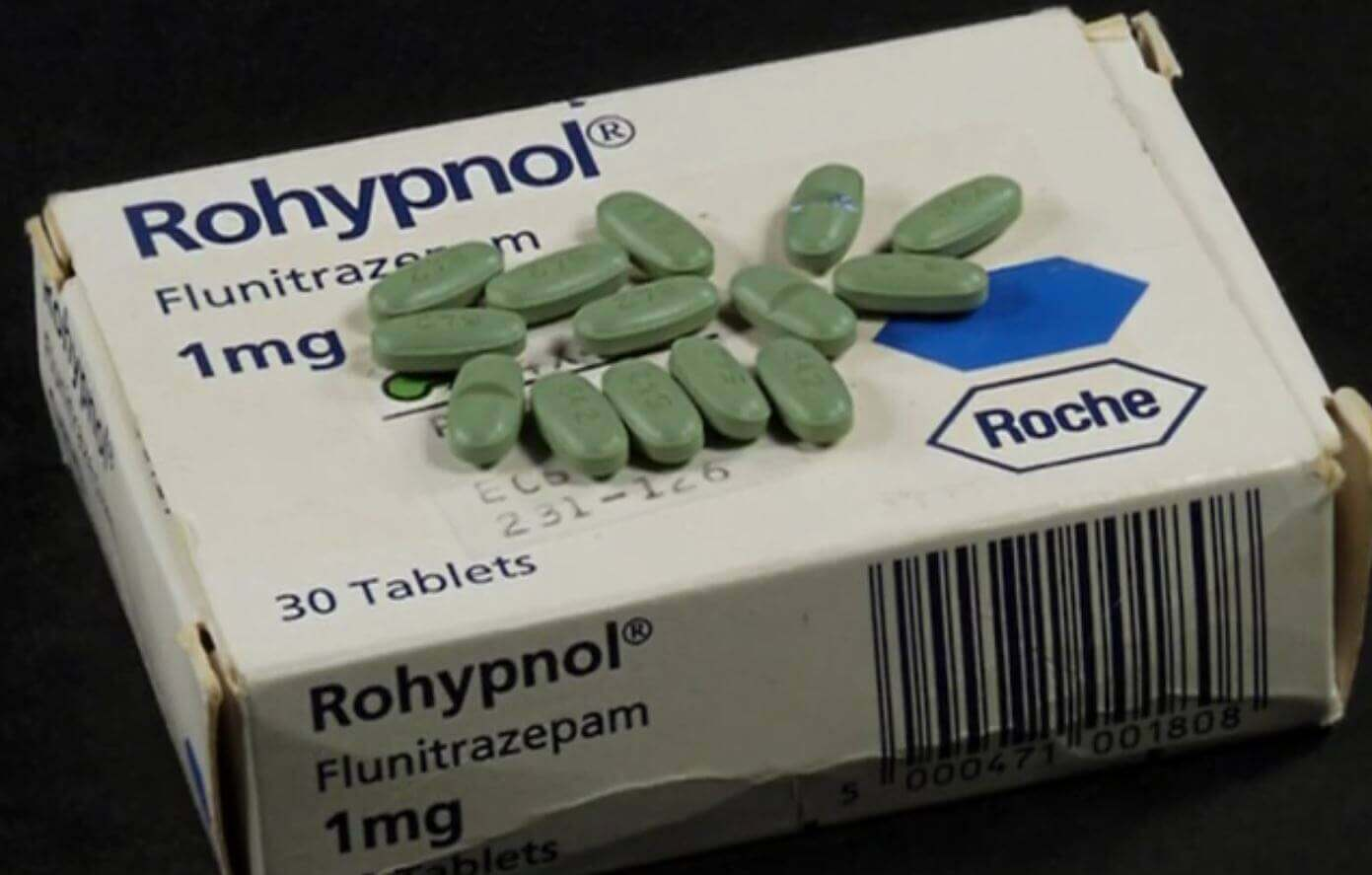
Rohypnol (Rophenol) is another commonly abused drug among Nigerian youths. Also known as ‘Ref, Roche, Roofies, Forget-me pill, Mexican Valium, R2, Roofinol, Rope, and Rope’ on the street, Rohypnol is popular with youths because of its fast action and the fact that the effect doesn’t wear off in time. It takes just 15 to 20 minutes of administration and, depending on the amount ingested, may persist for more than 12 hours. It is used in the short-term treatment of insomnia, as a pre-medication in surgical procedures and for inducing anaesthesia.
Rohypnol is a very dangerous drug called the ‘date rape drug’. Criminally minded guys use it to lace the drinks of young, unsuspecting ladies, to render them helpless, making them unable to resist having sex.
Rohypnol was shot to national prominence when it was discovered to be the substance with which the late Cynthia Osokogu was drugged before she was raped and murdered in 2012. Despite the deafening noise by government officials, including the health ministry and the National Agency for Foods and Drugs Administration and Control (NAFDAC), about banning the drug and making it difficult for the drug to be purchased without a doctor’s prescription, the drug is still much accessible to Nigerian youths.
SKUNK
Skunk or SK for short is often referred to as a family of Indian hemp, though stronger. It is also a bit more expensive and very easy to get because it is sold by the same peddlers. Skunk is a mixture of weed and some element of cocaine and dried leaves and is sold on the streets. Skunk is often smoked by its users.
Effects of Skunk
Skunk causes the following on its users:
Loss of coordination and distortions in the sense of time, vision and hearing, sleepiness, reddening of the eyes, acute headache, increased appetite, relaxed muscles, very fast pulse rate, impaired memory and lessened ability to solve problems. It also damages vital organs of the body such as the brain and heart.
SHISHA
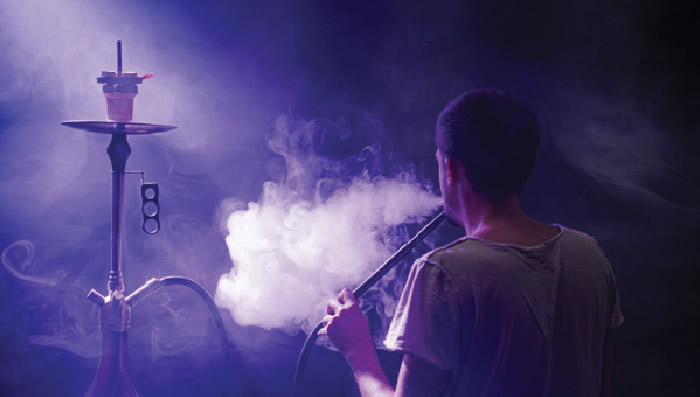
Shisha smoking, also called narghile, water pipe, hookah or hubble bubble smoking, originates from the Middle East and certain areas of Asia but has recently become more popular in Nigeria especially with young people in clubs and parties. It is a way of smoking tobacco through a bowl with a hose or tube.
Shisha usually contains tobacco which is sometimes mixed with fruit or molasses sugar. Popular flavours include apple, strawberry, mint and cola.
Shisha often contains the same type of tobacco as you get in cigarettes. This means shisha smokers are at risk of developing the same health problems as cigarette smokers, such as cancer and heart disease. A World Health Organisation study has suggested that a one-hour session of smoking shisha can be the same as smoking 100 or more cigarettes.
Other Commonly Abused Substances
These drugs are not illegal, some are good for the body and found in our food but their abuse can be devastating to the health and well being of people. These are:
ALCOHOL
Alcohol is, of course, legal for adults over the age of 18 in Nigeria, and there is nothing “wrong” with having a couple of drinks with friends or unwinding on occasion. But, it doesn’t take much alcohol to reach a harmful level of drinking, and that is when alcohol use can turn into alcohol abuse.
Drinking five or more drinks in any one sitting is considered binge drinking, which can be harmful to your physical and mental health in many different ways. The term drinking to stupor is very common among Nigerian Youths when drunk and you can see them ‘waste away’ or having ‘hangover’ as it is fondly said in the country.
Effects of alcohol include dizziness, upset stomach, slurred speech, blackouts, fatigue, hallucinations
NICOTINE
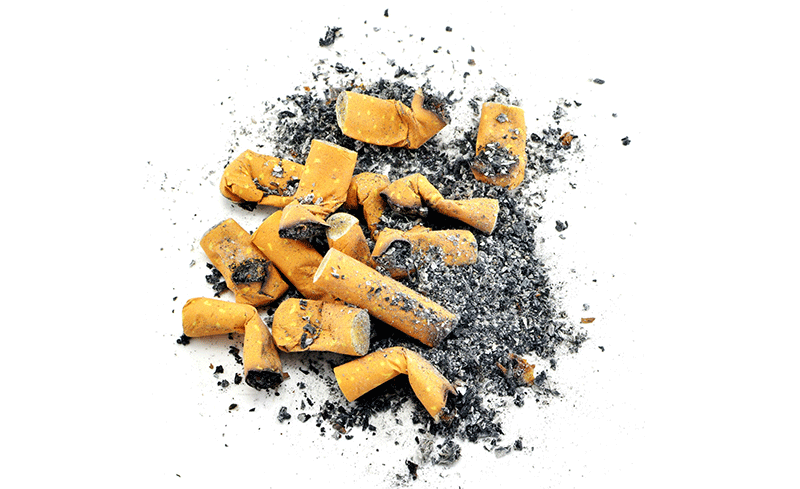
The single most abused substance in the world among smokers is Nicotine. It is found in cigarettes and shisha. It is estimated that millions of people around the world including Nigerians are still addicted to nicotine despite its well-publicized harmful effects as World Health Organization warns that smokers are liable to die young.
Nicotine is known to cause decreased appetite, heightened mood, increased heart rate and blood pressure, nausea, diarrhoea, better memory, and increased alertness. It is a major cause of lung cancer.
CAFFEINE
Whereas nicotine is the most abused drug, caffeine is the most commonly used mood-altering drug in the world. The most challenging thing about caffeine is it is found in many diets and consumables in the average home. It is found in coffees, beverages, fizzy drinks and other consumables. Moderate intake of caffeine is good for the body but it is recorded to leading to addiction; and yes! too much caffeine can be harmful to your health.
Some side effects linked to excess intake include anxiety, restlessness, tremors, irregular heartbeat, and trouble sleeping. Too much caffeine may also promote headaches, migraine, and high blood pressure in some individuals. It can cause high blood pressure or make high blood pressure worse.
Studies have also found a link between caffeine use and several psychiatric syndromes, including caffeine-induced sleep disorder and caffeine-induced anxiety disorder.9 Patients diagnosed with generalized anxiety disorder, panic disorder, primary insomnia, and gastroesophageal reflux are usually advised to reduce or eliminate regular caffeine use.


Discussion about this post